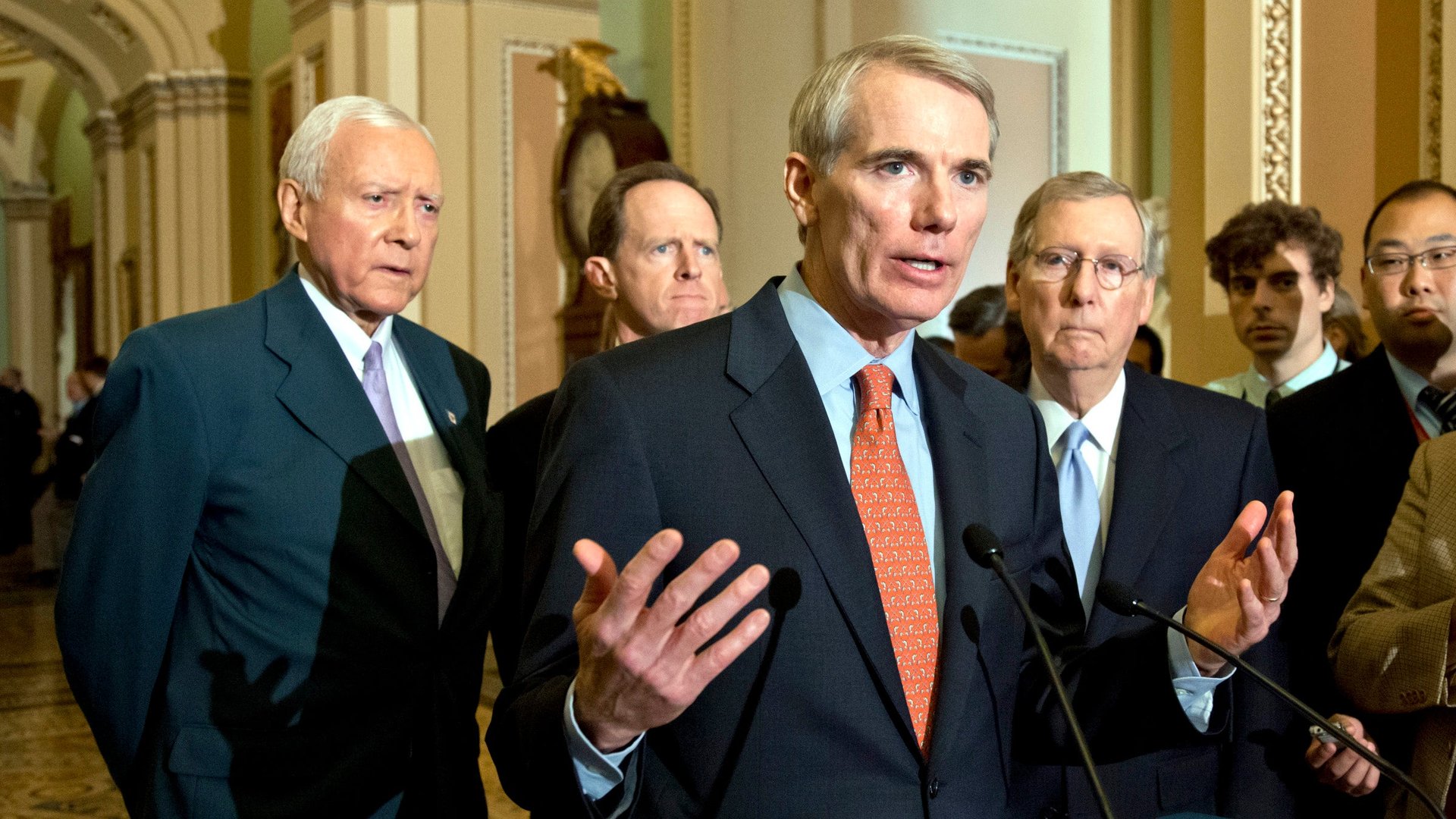It would only take three Republican senators to end the secrecy around Trump’s health care reform
When it comes to the creation of the US health care law that came to be known as Obamacare, one thing to remember is that it took forever.


When it comes to the creation of the US health care law that came to be known as Obamacare, one thing to remember is that it took forever.
Reporters who covered the lawmaking at the time, myself included, had to work hard for more than a year to sort out the concepts in five different bills proposed by different committees in different chambers of the legislature. And all this was separate from tracking how the White House felt. We had to figure out which interest groups backed which kinds of proposals and which lawmakers took their money. We, and the public along with us, had to learn about risk corridors, the “Cadillac tax,” medical loss ratios, payment system reform, comparative effectiveness research and, of course, “death panels.”
There were set pieces to carry the journalistic narrative forward: president Obama arriving at the Republican Congressional retreat for a dramatic dialogue with the opposition, late-night committee mark-ups, an address to a joint session of Congress, the death of a famous senator and liberal icon and the election to replace him; hours of debate on the floor of the Senate.
Not every negotiation was public: There were back-room deals made by Obama and Democratic congressional leadership to get the bill enacted on a party line vote. But we knew about and dissected many of these meetings, like the Cornhusker Kickback, the Louisiana Purchase, and a deal with the powerful pharmaceutical industry that ended hopes of lower drug prices but preserved the bill’s chances.
None of these critical features of democratic lawmaking—public education about the health care system, public debate between politicians over how to fix it, or basic knowledge of the political arrangements that drive lawmaking—are present now as the Senate prepares to vote on its health care bill. Senate Republican leader Mitch McConnell has announced there will be just ten hours of debate on a bill that will affect the health of hundreds of millions of Americans, before a vote next week to meet the arbitrary deadline of a summer holiday.
This is no way to make policy. And it would take just three of McConnell’s Republican colleagues to reveal what is happening behind closed doors.
The process behind the Affordable Care Act didn’t meet the Schoolhouse Rock standard, but there was little confusion about what the bill would do—or what its flaws were. Indeed, by the end of the process, its warts were visible. The ACA that was enacted into law left many progressives disappointed even as conservatives lamented its overreach. Nancy Pelosi’s now-infamous (and oft-misquoted) comments about passing the bill “so you can find out what’s in it” were always actually about how the ugly tussle over the bill played down its potential, not any confusion over what was in the legislation.
The Democrats ultimately paid a political price for the process: the loss of their majority in the 2010 elections. But their law did much of what was promised, and a durable coalition emerged to protect it, highlighting the value of a political process that includes the citizenry. Republican claims that the law was so badly written and so unpopular it would be easy to repeal turned out to be exaggerated, as their current inability to do so with any kind of transparency now shows.
Take the time to read GOP senators halting responses to the most basic possible questions about the health care bill they’ll put their names on. They claim that they don’t know what’s happening, but believing them would be naive. The reality is that McConnell’s plan to pass a party-line bill means that he can only afford to lose two votes from the 52-member Republican caucus. It would take just three Republican senators to say they won’t vote on the bill until it receives a public hearing to put an end to this charade of democracy.
Utah Senator Orrin Hatch, who chairs the finance committee that has jurisdiction over Medicaid and Medicare, has joked with reporters that he doesn’t know what it’s in the bill. Mr. Hatch is 83 years old and has been a US senator since 1977. Is he really that disinterested in the bill?
Tennessee senator Bob Corker says he might see the legislation for the first time this Thursday, less than a week ahead of the vote. Corker has been a senator for a decade; he’s 64. Does he think he’ll lose his seat if the Republicans delay their holiday a week to hold a single hearing?
In March, Republican senators Rob Portman, Shelley Moore Capito, Cory Gardner, and Lisa Murkowski signed a letter to Republican leader Mitch McConnell warning against “the cost of disruption in access to health care for our country’s most vulnerable and sickest individuals.” It appears likely that the massive Medicaid cuts at the heart of the House’s bill to repeal Obamacare will also be present in the Senate version.
Any three of those four legislators could force the bill into the public eye simply by telling their leader, “we won’t vote on it until there’s just one hearing.” Apparently, they fear the leader will reply that “this is the only way to cut taxes.”
The fact that none of these adult professionals, who spent tens of millions of dollars and suffered years of indignities to become figures of political power, have proposed such a solution to the problem at hand makes clear how much they fear the consequences of their association with this bill. Years from now, we’ll all remember that the law known as Trumpcare passed in the blink of an eye, without anyone understanding quite why.